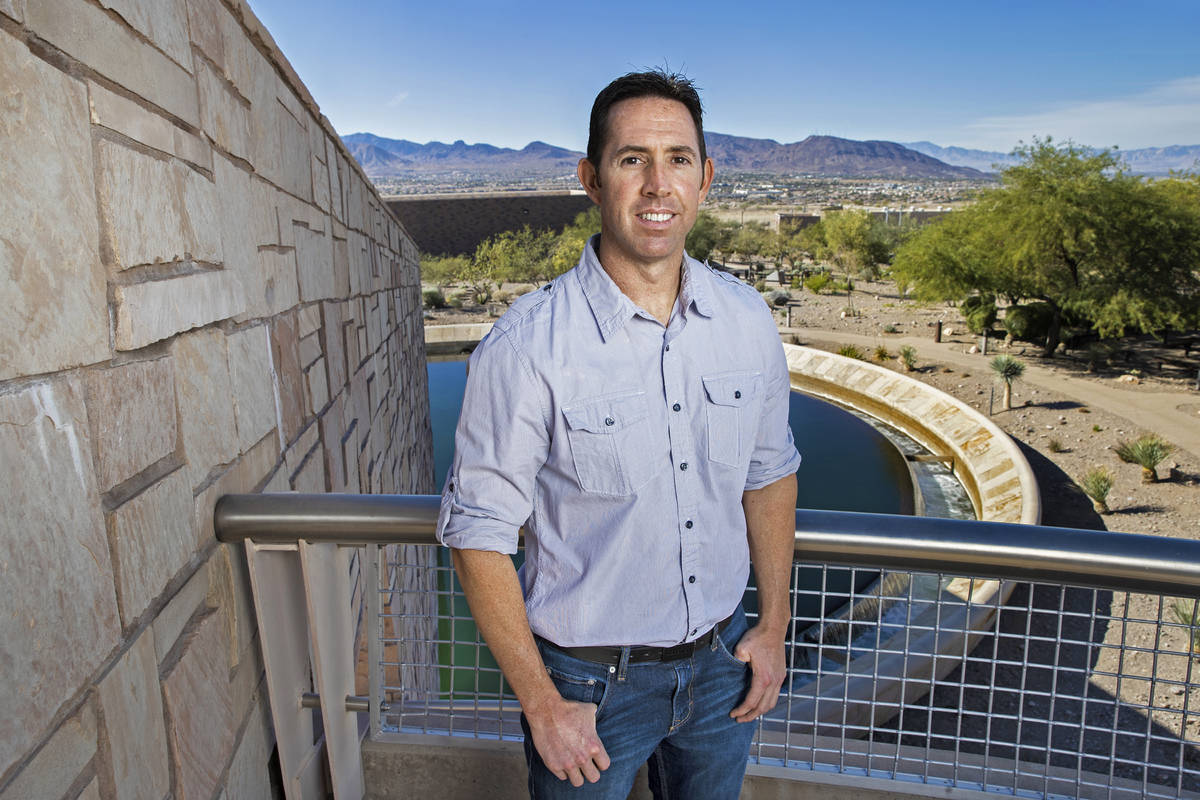UK coronavirus variant appears to be spreading in Southern Nevada
Findings from wastewater testing suggest the U.K. variant of the coronavirus is circulating in Southern Nevada, according to one UNLV researcher, but the prevalence of the more contagious variant is unclear.
“I can’t define that number just yet, but we’re hoping as we move forward to get better with those numbers,” said Edwin Oh, who is conducting research on sewage to determine what variants of the coronavirus are in the community.
Oh, an associate professor at UNLV, said research suggests it is “highly probable” that Southern Nevada has more than the handful of confirmed cases of the U.K. variant that health officials have announced.
He said testing has shown traces of the variant in older samples from December.
Officials at the Southern Nevada Water Authority have been testing wastewater for the presence of the coronavirus since March. Oh and his team’s work takes that research a step further by sequencing genetic markers of the virus.
As of Thursday, Clark County health officials had announced seven cases of the U.K. variant.
The first case was announced Jan. 25, and the next five reported cases were close contacts. The seventh reported case, announced Thursday, was a visitor to Clark County and was not connected with the previous cases, the Southern Nevada Health District said.
Nevada’s public health laboratories have been expanding their ability to detect new strains from positive tests they process.
Only a small percentage of cases of the coronavirus in Nevada and across the country are sequenced, suggesting the number of cases of the U.K. variant in the United States is actually higher than what has been reported, Oh said.
According to the Centers for Disease Control and Prevention, 981 cases of the U.K. variant have been reported in 37 states as of Thursday.
The health district said the variant is believed to be more contagious but is not suspected to cause more severe illness or be deadlier.
Several mutations make up the U.K. variant, Oh said. His team’s research has focused on identifying pieces of those mutations in sewage.
He said researchers are having weekly meetings with health officials and colleagues at the CDC to discuss how to dig deeper into the information being collected. There is no national strategy for sequencing the virus in wastewater, he said, and there is no coordinated effort to do so yet.
“We’ve never been able to show that wastewater can be used as a screening tool for unknown variants,” he said. “This is the first time a lot of us have been building such a system.”
Oh said he does not want the public to panic over the findings.
“The way we’re seeing the U.K. variant spread across this country is very worrisome,” he said. “But because of what we’ve been seeing across the country, it’s not surprising that we’re seeing it here.”
The good news, Oh said, is that data suggests available COVID-19 vaccines are effective against the U.K. variant.
What researchers are worried about is not necessarily the U.K. variant, but other variants that may be less responsive to vaccines.
Oh said his team has not detected traces of variants from Brazil or South Africa.
Daniel Gerrity, principal research microbiologist for the water authority, collects samples from various wastewater locations in Southern Nevada. His testing, which does not differentiate variants, has shown concentrations of the coronavirus at sample collection sites have been decreasing.
“Some are kind of bouncing around still, but I’d say in general, we’re starting to see a downward trend, which is good, because we hit that peak, we’re coming down, so we’re in the right direction now,” he said.
Contact Blake Apgar at bapgar@reviewjournal.com or 702-387-5298. Follow @blakeapgar on Twitter.



















